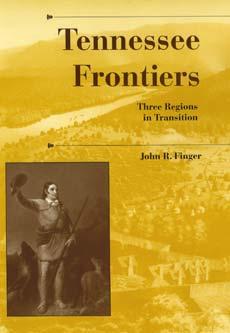This chronicle of the formation of Tennessee from indigenous settlements to the closing of the frontier in 1840 begins with an account of the prehistoric frontiers and a millennia-long habitation by Native Americans. The rest of the book deals with Tennessee's historic period beginning with the incursion of Hernando de Soto's Spanish army in 1540. John R. Finger follows two narratives of the creation and closing of the frontier. The first starts with the early interaction of Native Americans and Euro-Americans and ends when the latter effectively gained the upper hand. The last land cession by the Cherokees and the resulting movement of the tribal majority westward along the "Trail of Tears" was the final, decisive event of this story. The second describes the period of Euro-American development that lasts until the emergence of a market economy. Though from the very first Anglo-Americans participated in a worldwide fur and deerskin trade, and farmers and town dwellers were linked with markets in distant cities, during this period most farmers moved beyond subsistence production and became dependent on regional, national, or international markets.
Two major themes emerge from Tennessee Frontiers: first, that of opportunity the belief held by frontier people that North America offered unique opportunities for advancement; and second, that of tension between local autonomy and central authority, which was marked by the resistance of frontier people to outside controls, and between and among groups of whites and Indians. Distinctions of class and gender separated frontier elites from lesser whites, and the struggle for control divided the elites themselves. Similarly, native society was riddled by factional disputes over the proper course of action regarding relations with other tribes or with whites. Though the Indians lost in fundamental ways, they proved resilient, adopting a variety of strategies that delayed those losses and enabled them to retain, in modified form, their own identity.
Along the way, the author introduces the famous personalities of Tennessee's frontier history: Attakullakulla, Nancy Ward, Daniel Boone, John Sevier, Davy Crockett, Andrew Jackson, and John Ross, among others. They remind us that this is the story of real people who dealt with real problems and possibilities in often difficult circumstances.
Inhaltsverzeichnis
Preliminary Table of Contents:
Foreword by Walter Nugent and Malcolm Rohrbough
Introduction
1. Land, People, and Early Frontiers
2. Trade, Acculturation, and Empire: 1700-1775
3. The Revolutionary Frontier: 1775-1780
4. Expansion Amid Revolution: 1779-1783
5. Speculation, Turmoil, and Intrigue: 1780-1789
6. The Southwest Territory: 1790-1796
7. The Social Fabric
8. The Frontier Economy
9. Statehood to Nationalism: 1796-1815
10. The Western District: 1795-1840
11. Hegemony and Cherokee Removal: 1791-1840
Conclusion
Essay on Sources
Index










